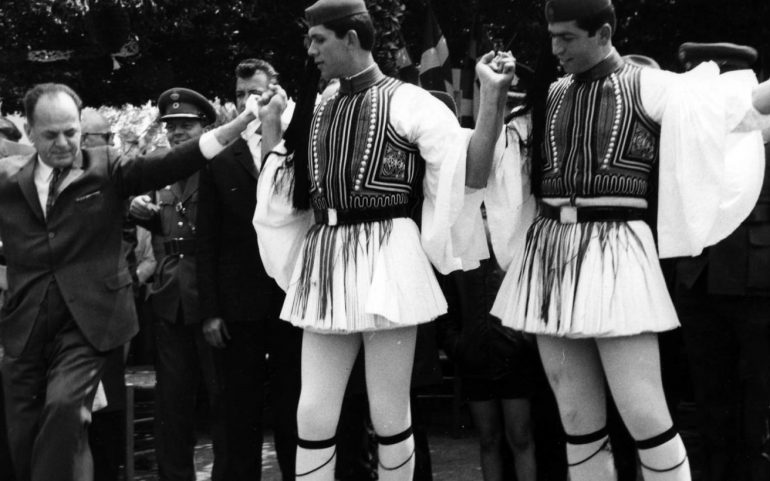Greece has been on the ice since 1967, but since the beginning of 1973 the popular reaction against the junta has been more and more intense.
The indignation of the people for the foreign coup of the "patriotic" conspirators escalated that year with the occupation of Of Law in February, the episodic demonstration of November 4, on the occasion of the memorial service of George Papandreou, and the huge student march of the 8th of the month.
On the 17th the bloody events unfolded at the Polytechnic, the very beginning of the end for the dictatorship of the colonels.
However, at a time when thousands of students are flooding the university faculties in Athens and Thessaloniki, the pulsating student movement is not the only thing that is causing the situation to deteriorate.
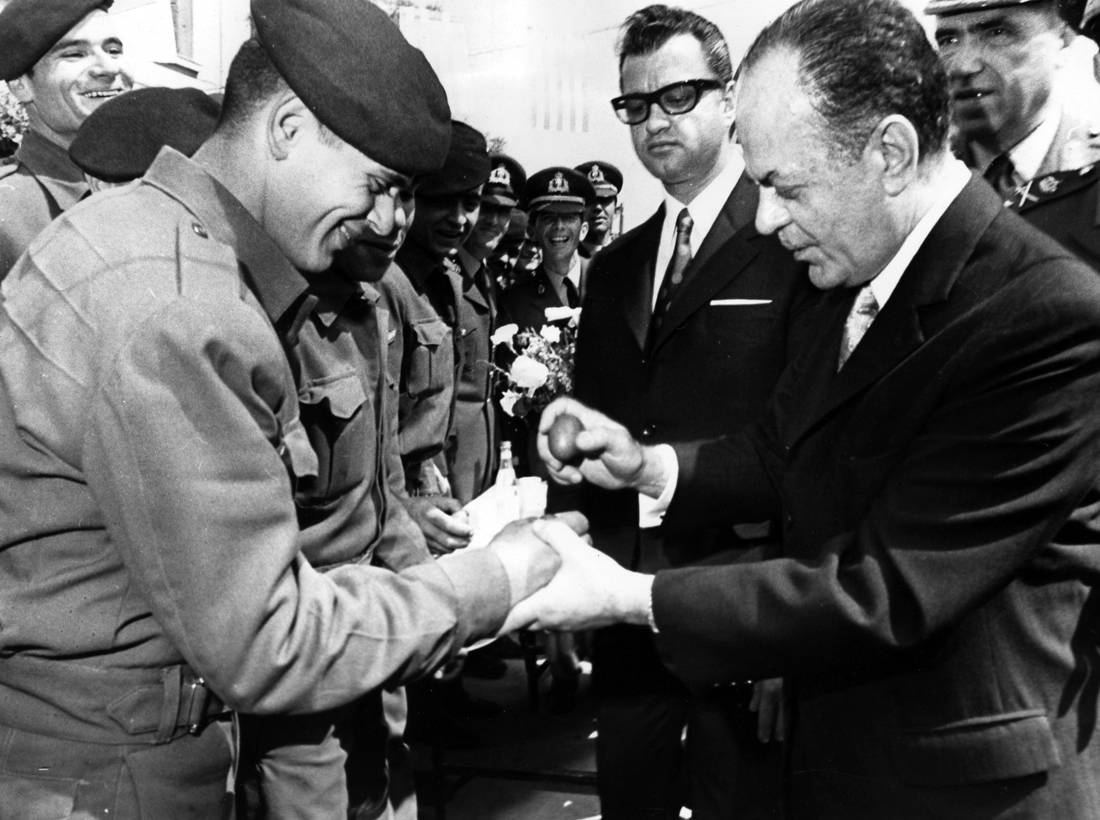
The Navy Movement in May 1973 is another resounding bell, as are the most frequent mobilizations of workers, farmers and professionals. The old opposition is growing every day and everything shows that the countdown for the junta has meant.
The coup leaders, however, do not understand from such. In the referendum-parody of July 1, 1973, Papadopoulos abolishes the monarchy and takes over as President of the Republic.
The new normality was now conflicting on all levels, only that everyday life sought a sense of normalcy for the citizens.
Here is what was happening in the country while the students were preparing for one of the most brilliant pages of modern modern Greek history…
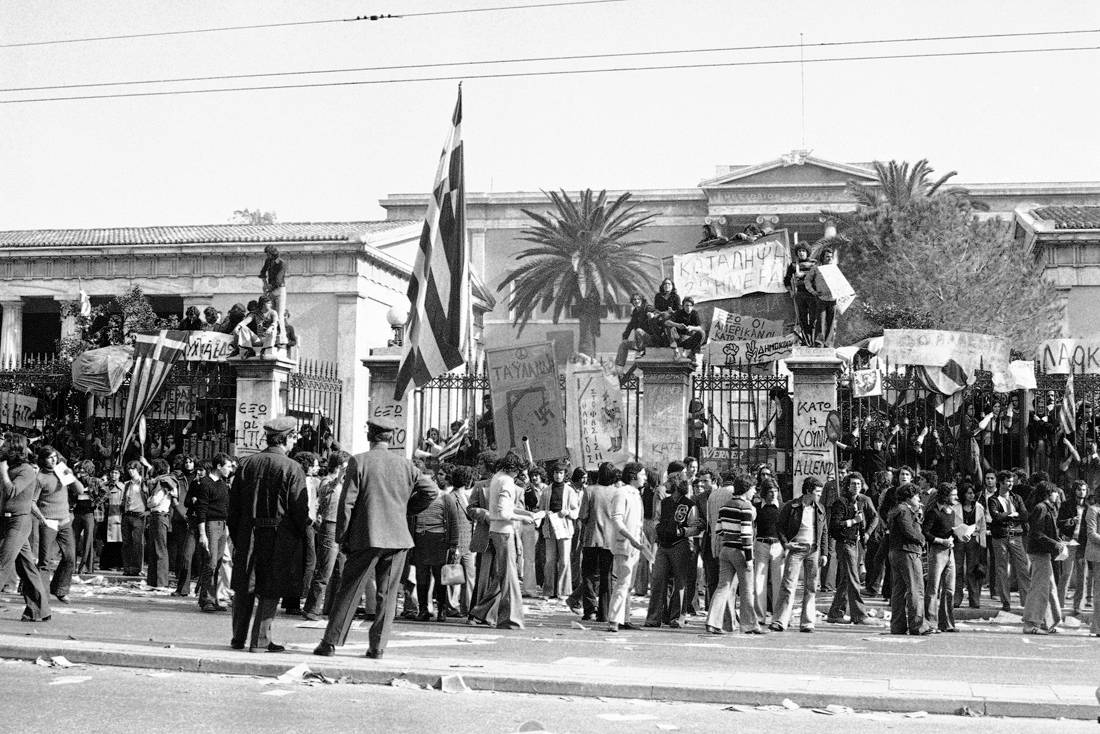
Just opposite the gate of Patission, we see in photos the supermarket full of people as the students intensify their struggle. Even the private school of computer costing and programming (just above the supermarket) operates normally, unafraid of riots.
The trolleys advertise with their advertisements the cultural life of the capital. The Akadimos Theater plays the huge artistic and collectible success "Guard on the Rhine" by his troupe Petros Fyssoun (Maria Alkaiou, Maria Foka, Alexandra Ladikou, Katerina Gogou etc.), which had been staged in 1972 at the Orvo Theater and was continuing the new season on a new roof.
Other trolleys advertise books such as "The History of Motherhood", "History of Humanity", "The Wonderful World of Animals", "The Encyclopedia of Today's Woman". The same trolleys that have been fixed by the mobilizations of the people.
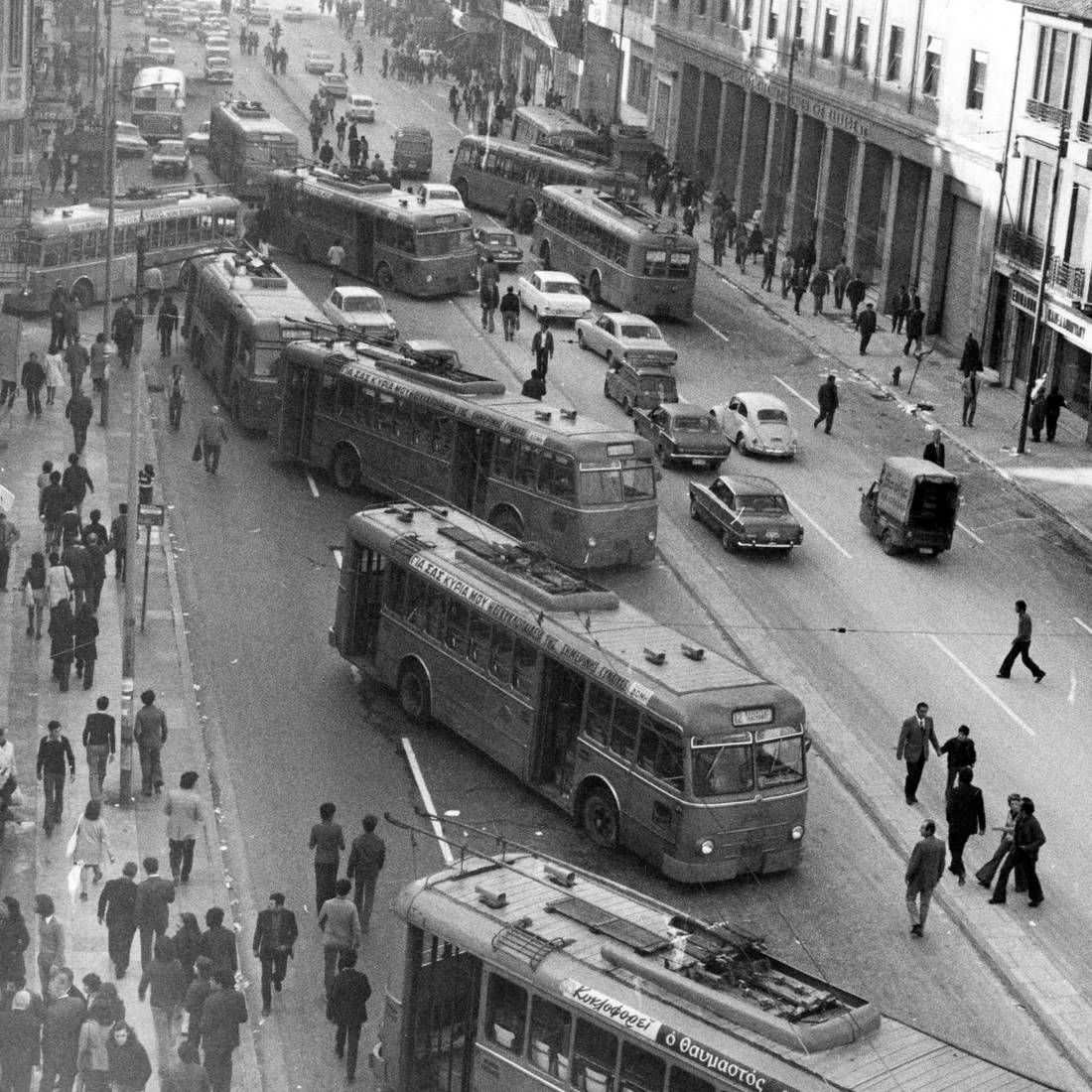
The awesome rock club of the time, the legendary Cin - Cin at Zoodochou Pigis 3, hosts these days the bands Band, Parea and Dokisisofoi, but also Christos Kyriazis.
The cinema of Omonia (September 3) is currently playing "Island of Sin" (1973), a brand new erotic film by Kostas Doukas with George Stratigakis, Lia Flessa and Petros Zarkadis, about two convicts who escape from prison and get caught hostages the inhabitants of a private island.
On the advertising material of the performances around the Polytechnic we see written the slogans of the time: "General strike", "Down with the junta", "Down with fascism", "The earth is ours", "Workers, farmers, students", "20% in Education", "Ruthless Greece", "Out of the USA", "Out of NATO", "Out of the Americans", "Death to Fascism", "Marquee mascara", "Students are not comfortable, they are advised" etc. λπ.
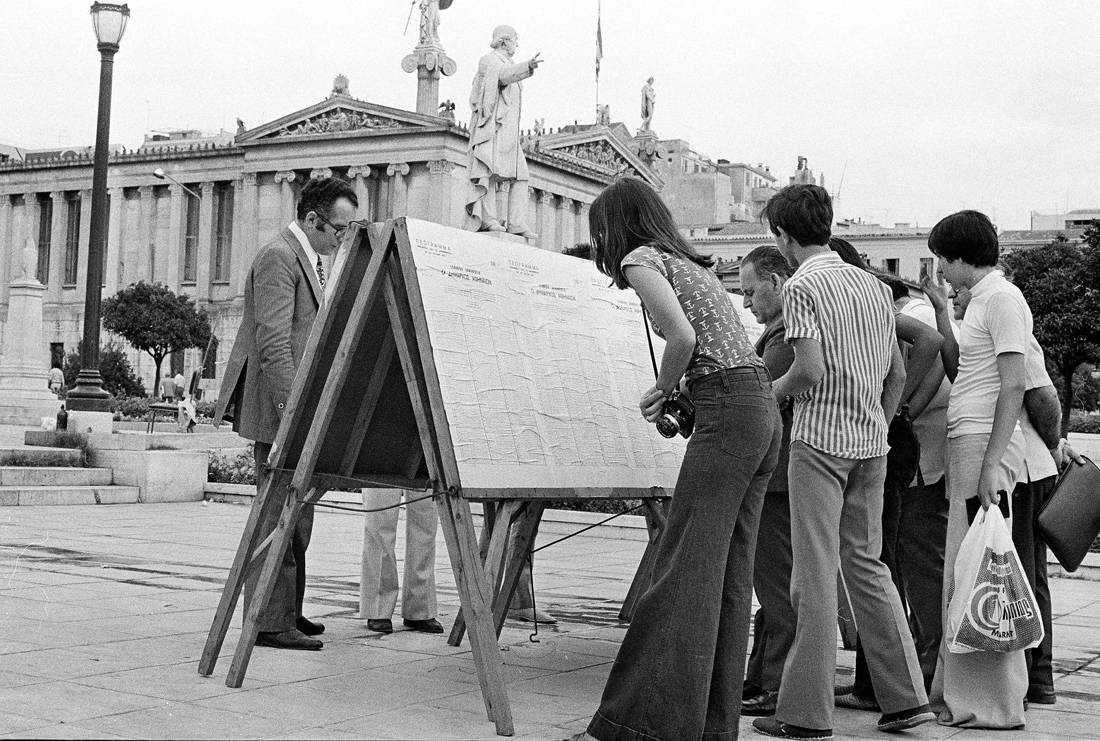
The artistic movement in Athens smelled of gunpowder in 1973, as fine arts, cinema and television were still being held hostage by police and secret services, but things had relaxed. Even superficially.
Papadopoulos called for the regime to be liberalized and the precautionary censorship had become less severe, no longer seeing "anti-national" and "immoral" works everywhere. Characteristic here is the fact that the Deputy Minister despite the Prime Minister Spyros Zournatzis of the Markezini government officially stated that Theodorakis was allowed now!
Not all, 40 pieces from the pre-April era, but also the recent "18 little singers of the bitter homeland", in Ritsos poetry. At a time when theater and free expression are groaning, Spyros Markezinis meets with representatives of the board (Kourkoulos, Mousouris, Myrat, etc.) and promises that the timeless problems of the sector "will be included in my party's election program." And then he is photographed with his big smile next to Vougiouklaki and Karezi.
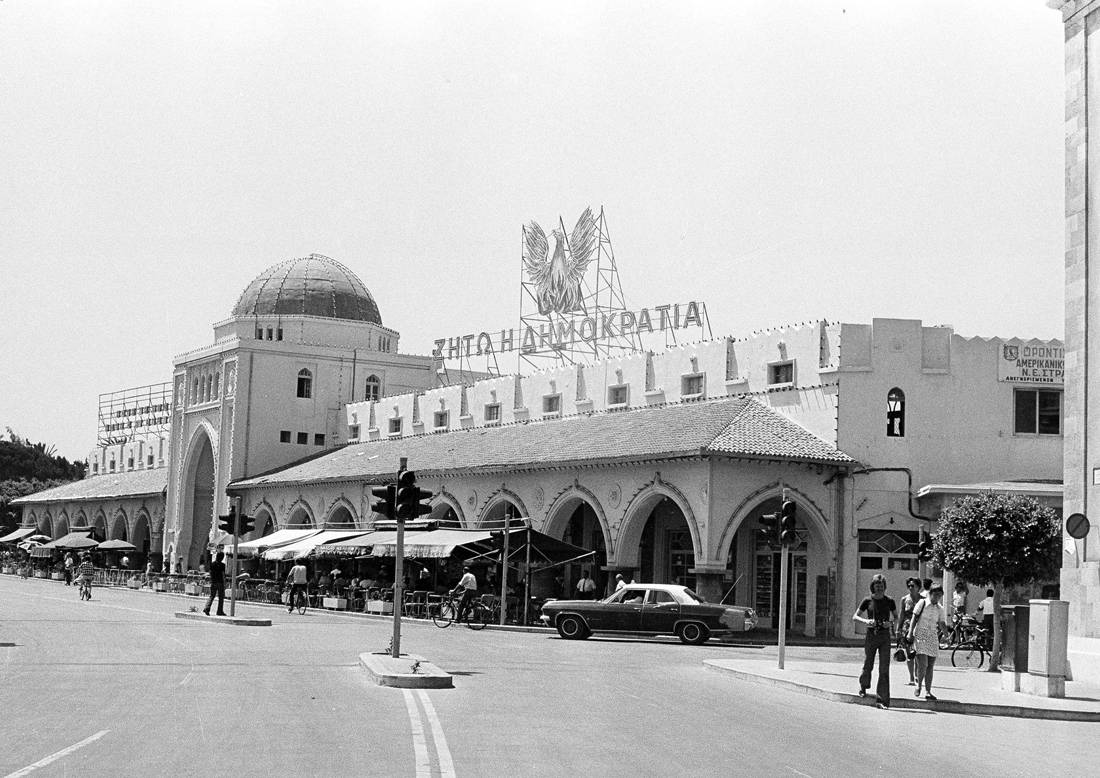
As the situation with the student movement escalates, the Acropolis is interrupted these days, and not by chance, the greatest theatrical success of recent years! The modular "Our big circus" by Iakovos Kampanellis, brought to life by the Karezi-Kazakos troupe, with names such as Dionysis Papagiannopoulos, Timos Perlegkas, Stavros Xarchakos, Nikos Xylouris and Eugenios Spatharis.
The play premiered in summer Athens in June 1973 and was transferred for the winter season to the Acropolis of Hippocrates. In mid-October, however, seeing the anti-dictatorship messages, the coup leaders stopped the show and arrested the fans.
Fyssoun continues the unique success of Lillian Hellman's "Guard on the Rhine", while Karolos Koun threatens to steal his glory and the audience with "Karagiozis despite a little vezyris" by George Skourtis that has been staged this season at the Veaki Theater. George Lazanis as Karagiozis gives change.
In the 1973 season, no less than 126 works were presented, including 58 Greek authors. The kind that flourished, of course, was the inspection and the newspapers of November 16 spoke with the best words about the "topical, spectacular" inspection of the Vembo theater "Everything is chewed by Koutalianos" by Costas Pretenteris, directed by Fotis Metaxopoulos and Stavridis, Moustakas and Fonsou.
Konstantaras and Laskari played in "The Man Who Returned from the Plaster" by Karagiannis-Kampanis, while Smaroula Giouli had staged the theatrical review "The Bost Elections". Vassilis Diamantopoulos and George Michalakopoulos played with the Satire Troupe the famous "Oh! what a world dad "by Costas Mourselas.
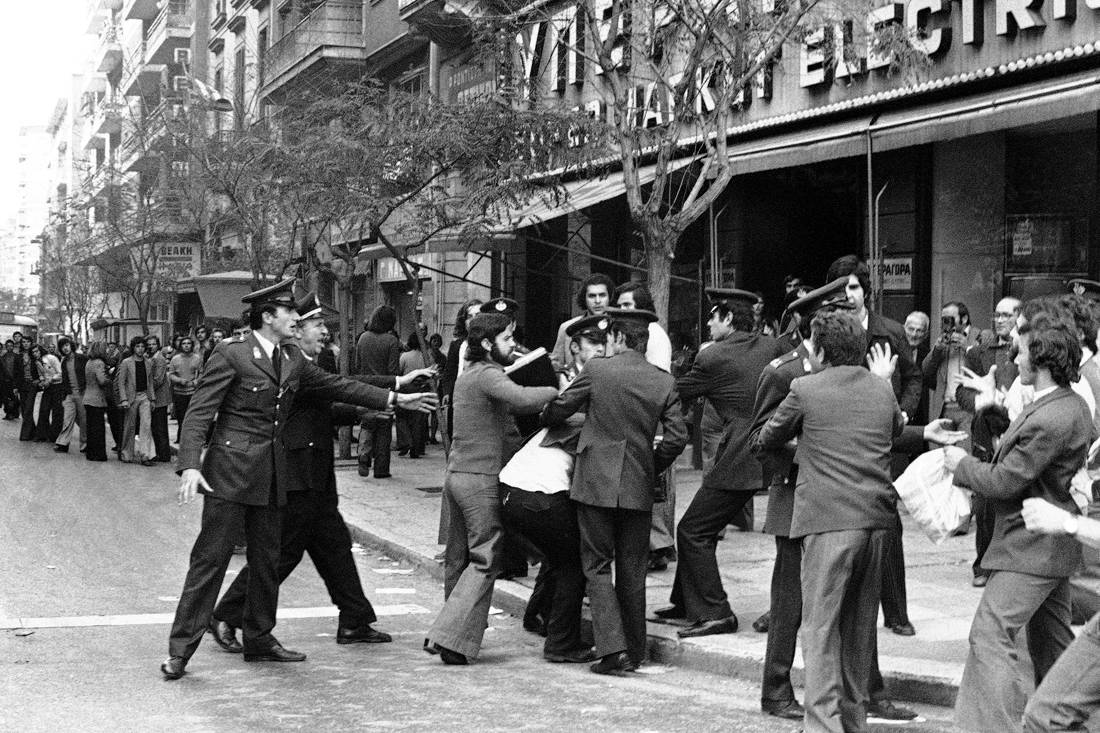
The music scene of the capital also saw the Municipality of Moutsis inaugurate a series of concerts in those days in Zygos, in melodic poetry by Cavafy, Seferis, Ritsos and Manos Eleftherios, gathering thousands of people. But also Danae Stratigopoulou to sing for a few nights a melodious Pablo Neruda in the legendary Kyttaro.
The boats of Plaka also lived for many days. Not that the regime had stopped its censorship, of course, anything else. On November 5, let's say, his famous "Leda" Giannis Markopoulou, which gathered all the leftist intellect, was sealed by the police, citing "serious disorder" as a reason.
The liberalization of the April regime, however, was seen in the cinema. Now you could see in Alkyonida the great political-historical documentary "Eleftherios Venizelos" (1964) by the pioneer Lila Kourkoulakou, which was banned in 1967!
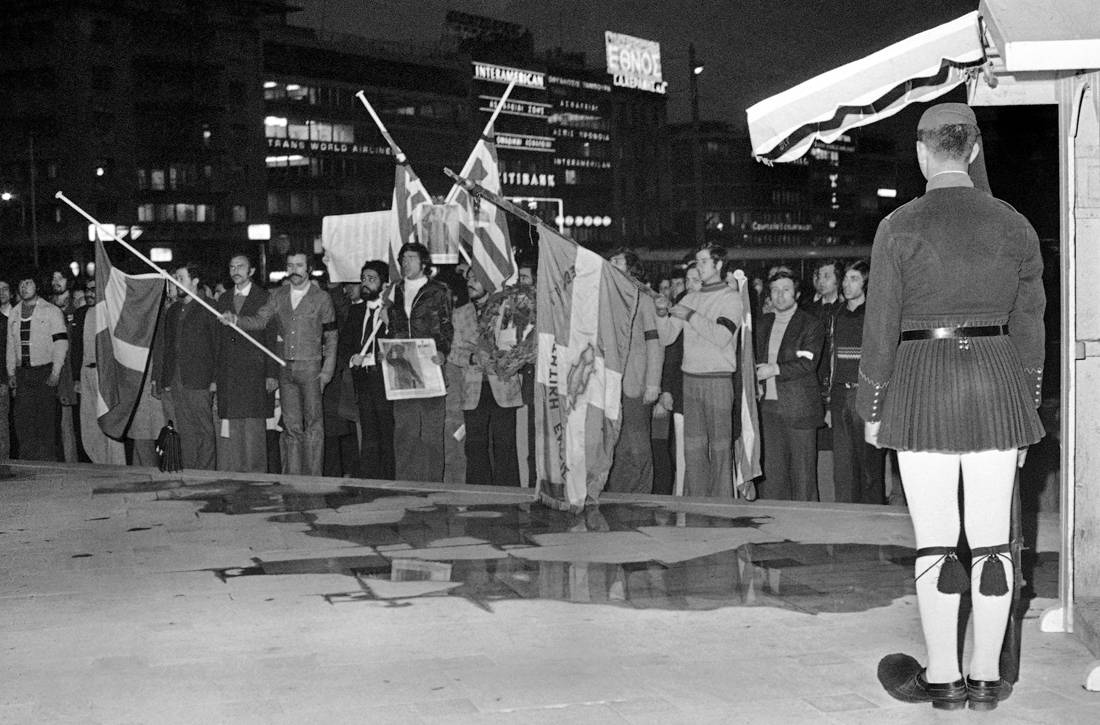
In other rooms, the dramatized documentary of Pantelis Voulgaris "Great Erotic" was played, based on the play of the same name by Manos Hadjidakis, which came with laurels and laurels from the 14th Thessaloniki Greek Film Festival. But also the siphon of the festival, the award-winning film of Tonia Marketaki "John the Violent" (1973).
"Black + White" (1973) of course by Thanasis Rentzis and Nikos Zervos, about the modern Greek reality during the years of the junta, would stumble upon censorship. How much freedom of expression can coup plotters endure? The cinematic success of the year, however, cutting 432.000 tickets, was the historical and war drama "Pavlos Melas»(1973) by Filippa Fylaktos, with Lakis Komninos and Kati Papanikas.
On the art scene, Minos Argyrakis reappears after years of absence with an exhibition, drawing inspiration from "Lianotragouda". The great event of the art-loving Greeks…
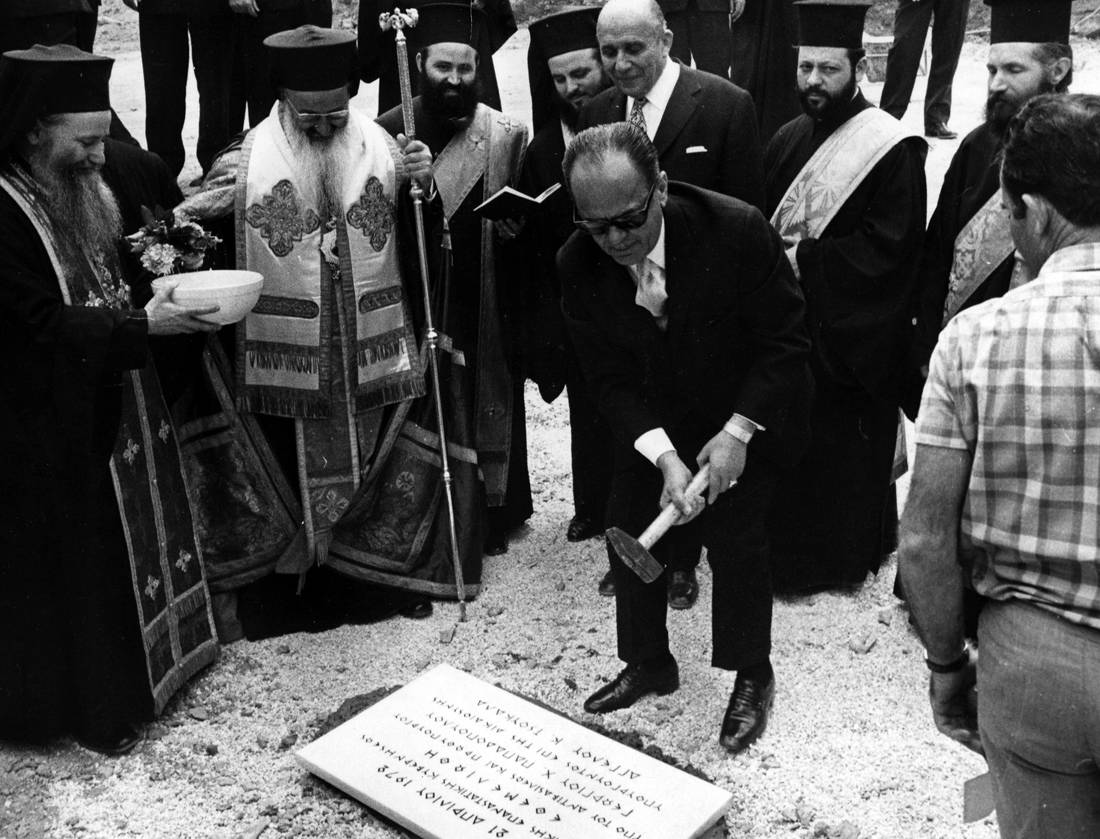
But what were the press reports and inserts of that significant November 1973? If we have to say it, "peppery" social issues!
The front page of "Apogevmatini" informed about the arrest of Andreas Barkoulis for possession of hashish, having all the background on how it fell into the hands of the Authorities thanks to two "informants" of the General Security of Piraeus.
"The prosecutor of the Athens criminal case, Mr. Kazantzis, filed a lawsuit for violation of the law" on drugs "against the protagonist of the theater, Andreas Barkoulis, 37, and a woman. "The prosecutor prosecuted him for the purchase of Indian cannabis (hashish), possession and use", informs "Macedonia" on Sunday, 11/11/1973, hosting the developments in the case throughout the week.
The newspaper provided continuous and exclusive information about the other big event, the wedding of the year, that of Tolis Voskopoulos with Marinella! A "secret" wedding, a "secret" wedding, took place on November 10 and the press found out. Providing, of course, plenty of gossip about the "third man", the blonde and former beloved Virgin, Zoe laskari.
The "News" snub the issue and inform, on the contrary, their readers about the cultural events abroad, with their honor having something Paris, something London and something Moscow. But also for the recent films of the great creators abroad. And the news from the world intellect of course.
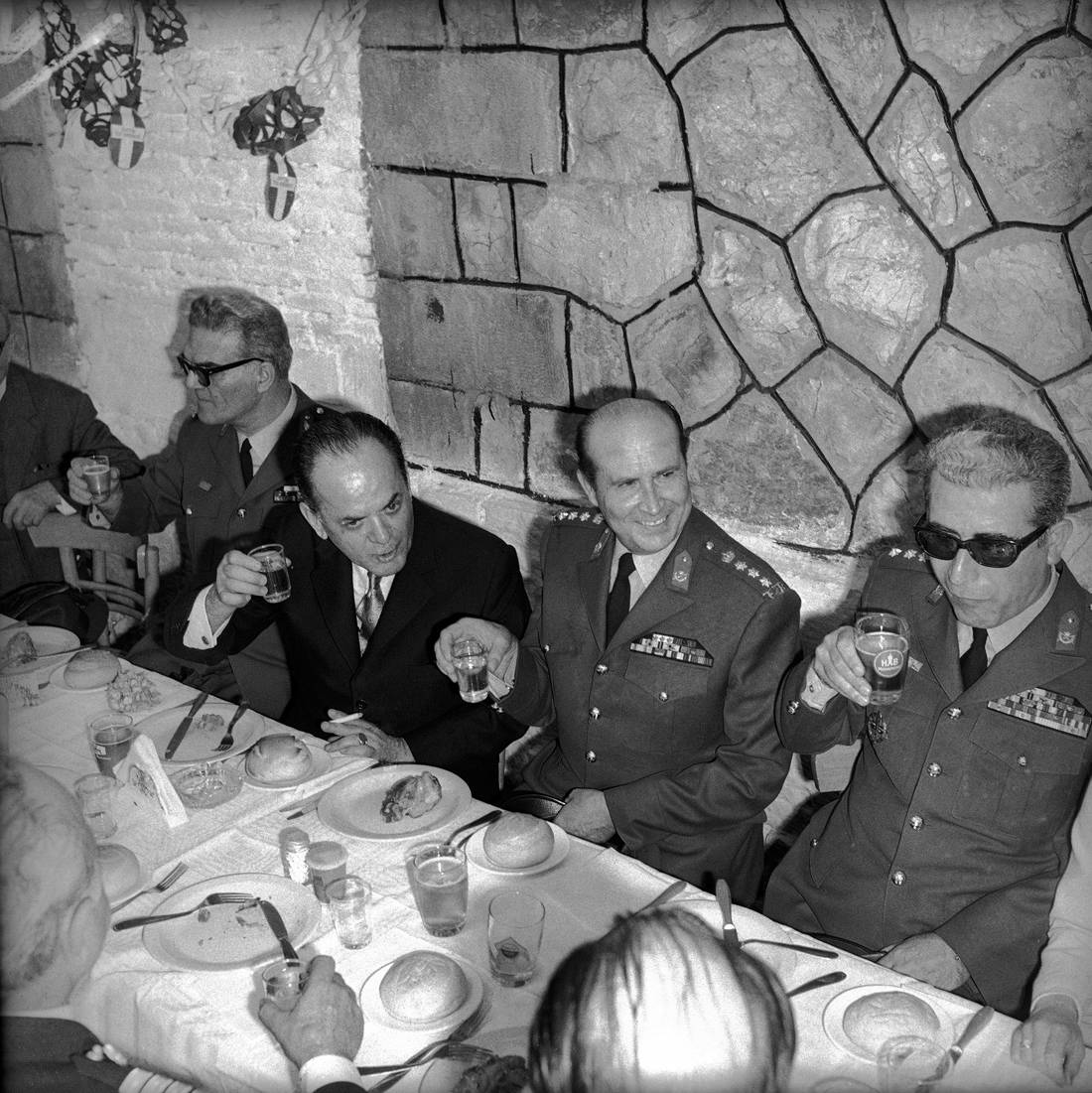
As for television, EIRT and the Armed Forces channel (YENED) continued to enchant the television audience that November with the spy series by Foskolos (screenplay) and Koutsomytis (directed) "The Unknown War", which since 1971.
The rival awe of EIRT, the police mystery series "The Strange Traveler" of 1972, continued to gather the undiminished interest of the Greeks. Directed again by Kostas Koutsomytis, the series by Giannis Filippas with Aleko Alexandraki and Nonika Galinea now had good competition.
YENED had just premiered (October 3, 1973) in "Agrimia", a social series by Mitsos Lygizos with Nikos Xanthopoulos and Soula Athanasiadou, which claimed a serious part of the television pie. In response, EIRT launches into battle on October 17, 1973 "Children of Zebedee", the social serial of Costas Pretenteris, directed by Giannis Michalopoulos, with himself, Dimitris Nikolaidis and Katerina Gioulaki.
The Saturday nights, of course, belonged by state to YENED and the "Super Bingo" of Nikos Mastorakis…
While these were happening, the Ritsos begins to write on November 14 the poetic "Diary of a week" of the Polytechnic:
"Nice children with big eyes like churches without pews / beautiful children of ours with the great sorrow of the brave / defiant, standing in the Propylaea in the stone air, ready hand, ready eye / how the boy grows, the step and the palm of man , Athens 16 November 1973 »…
